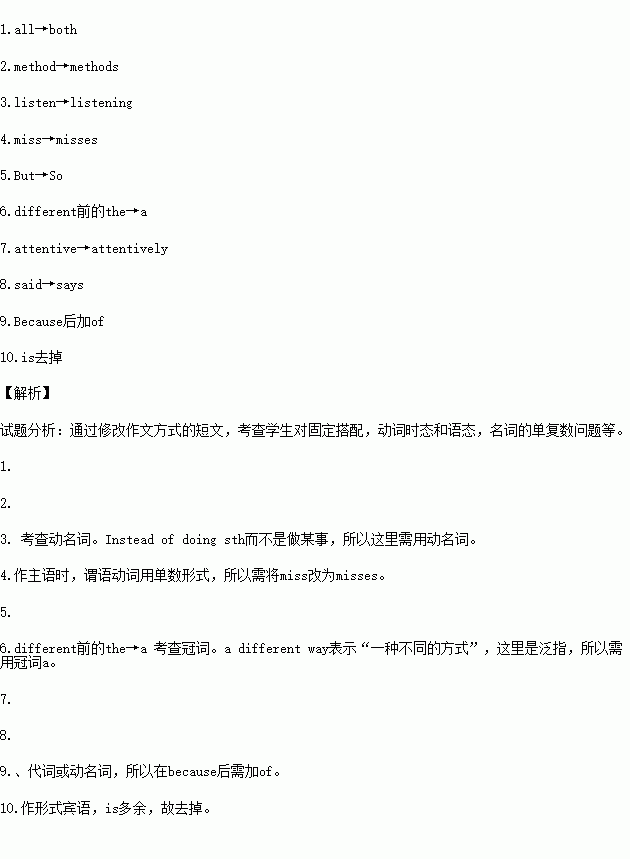题目内容
假定英语课上老师要求同桌之间交换修改作文,请你修改你同桌写的以下作文。文中共有10处语言错误,每句中最多有两处。每处错误涉及一个单词的增加、删除或修改。
增加:在缺词处加一个漏字符号(∧),并在其下面写出该加的词。
删除:把多余的词作斜线(\)划掉。
修改:在错的词下划一横线,并在该词下面写出修改后的词。
注意:1. 每处错误及其修改均仅限一词;
2. 只允许修改10处,多者(从第11处起)不计分。
Li Ming and Wang Ying are two students of Senior Two. They all work hard but they have different learning method. Li Ming often sleeps in class instead of listen to the teacher. As a result, he miss lots of points that the teacher makes and it usually takes him much time to finish his homework. But he has to stay up late and doesn’t get enough sleep. However, Wang Ying has quite the different way of learning. She listens attentive and tries to catch everything that the teacher said in class. Because this, she spends less time doing her homework, which makes it is possible for her to go to bed early.
 天天向上一本好卷系列答案
天天向上一本好卷系列答案
